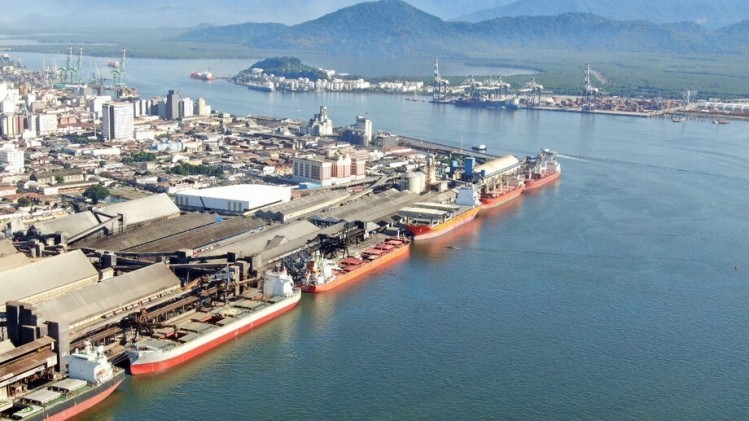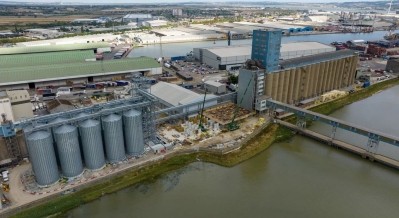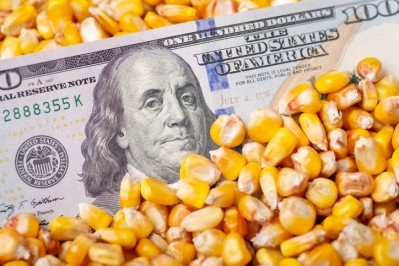COFCO secures key Brazil port terminal to grow export capacity to 14 million tons

Once fully operational in 2026, the STS11 terminal, awarded to COFCO International Brazil SA at a government auction this week, will expand the company’s own port capacity in Brazil to 14 million tons.
COFCO said the move would support its plans to increase exports from the country. Its current port capacity amounts to 3m tons per year, along with the third-party assets to which it has access.
The terminal will be used for corn, soybean and soymeal exports, and for other commodities it trades such as sugar.
As part of the lease agreement, the trader is to invest in the modernization and expansion of the terminal facilities. “This will result in around 600 new direct jobs, [to be] created during implementation,” said COFCO International spokesperson, Allan Virtanen.
This is not a greenfield project, he noted. “It is a brownfield development with existing infrastructure already in place.”
In terms of whether any additional facility builds would be required in the surrounding areas to support the expanded terminal, he told us: ”We are not yet disclosing plans for any possible increase of crush or silo capacity elsewhere in Brazil.”
Leveraging Brazilian agricultural expansion
The deal is timely, said Virtanen. While COFCO has two port terminals in Brazil today, both of which are located inside the future STS11 terminal plot - T12A for sugar and grains exports and Cereal Sul for wheat imports – the two leases on those are set to expire within the next years, by 2024.
“We foresee that agriculture production in Brazil will continue to expand strongly and Santos is expected to remain the most important export hub in Brazil. The 14 million tons per year capacity offered by STS11 is aligned with our growth objectives in Brazil and our plans to rely more on our own terminals for exports in the future. This investment will therefore also directly benefit thousands of farmers and bring economic benefits for the entire agriculture industry.”
The overseas agriculture platform of COFCO Corporation, China's largest food and agriculture company, COFCO International has been operating in Santos since 2002. It sources and exports grains, oilseeds, sugar, coffee, and cotton from Brazil. It also produces ethanol there, but that is sold mainly on the local market.
“We have the capacity to export Brazilian commodities all over the world. COFCO International trading volume globally is above 100 million tons per year and we have a vast logistics network with offices in 35 countries. China is a key market for the expanding soy production in Brazil. Meanwhile, our corn and other commodities go to other continents and elsewhere in Asia,” said the spokesperson.
For its grain and oilseed interests, besides two port terminals, COFCO has one processing plant, and 19 storage facilities in various locations around Brazil. Corn and soy is originated from several states surrounding Sao Paulo state.
The company’s processing plant is located in Rondonópolis, in Mato Grosso State, the largest soybean producing region in Brazil. With direct access to Santos by railroad and a pipeline under construction connecting nearby biodiesel distributors, that plant can process 1.3 million tons per year of soybeans and produce almost 350,000 tons of biodiesel annually.
Responsible sourcing goals
In total, COFCO works with more than 7,000 farmers in Brazil.
And Virtanen reiterated the pledges the company has made in relation to sustainable production and sourcing.
“At the farm level we are very much committed to supporting responsible sourcing and production of soy and the overall reduction in environmental and social impacts from our operations. We have set the ambitious target to achieve 100% traceability to farm for directly sourced soybean in Brazil by 2023, screening farms to ensure compliance with key environmental and social criteria and building farmer capacity to apply more sustainable farming practices.”












